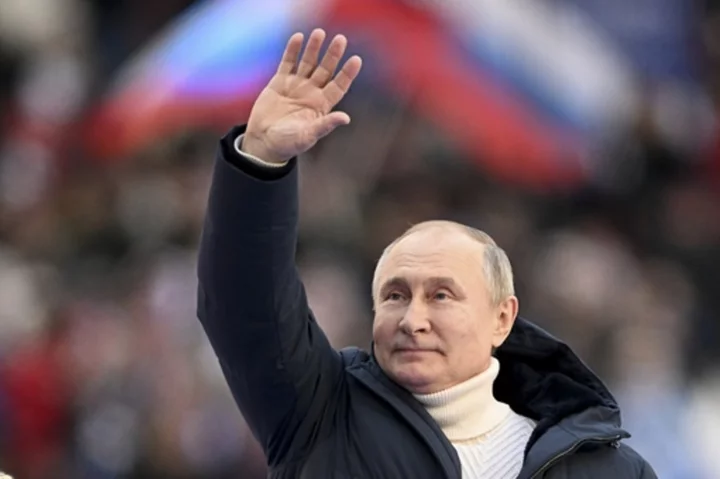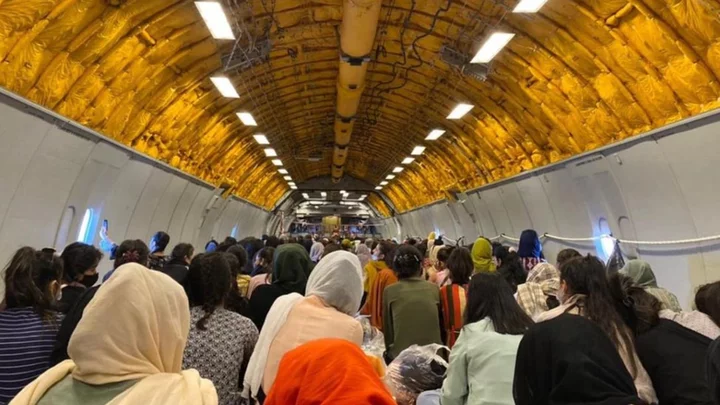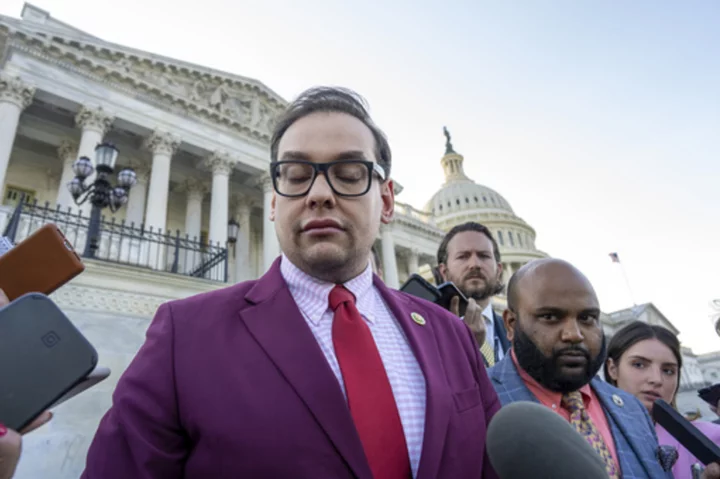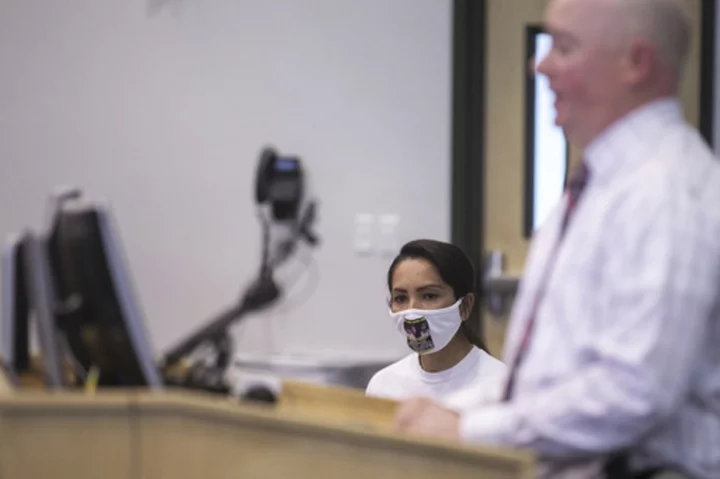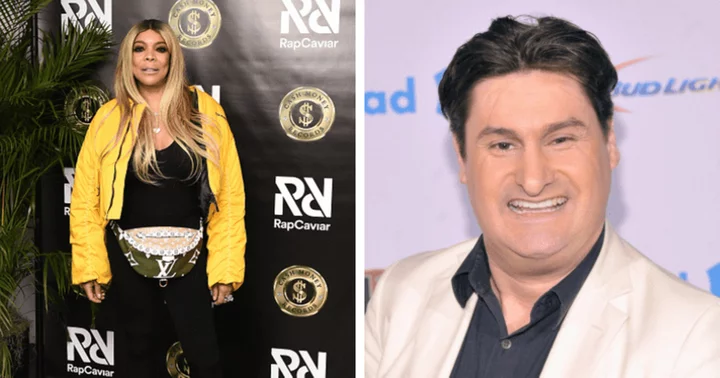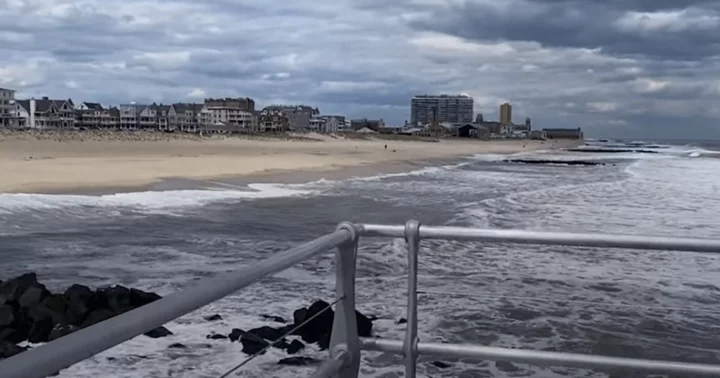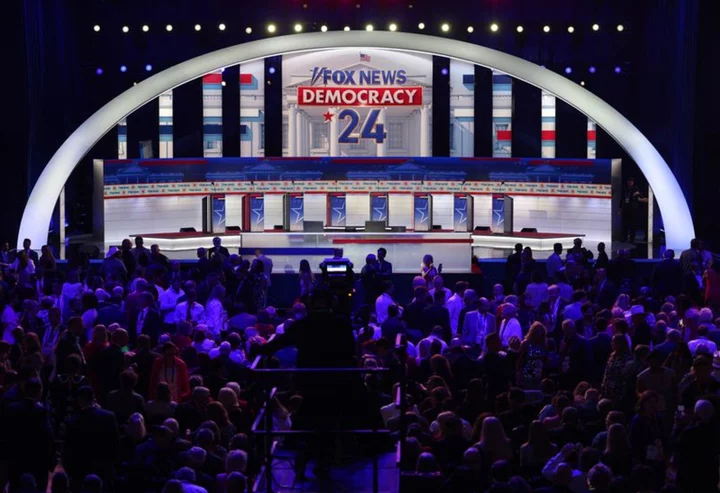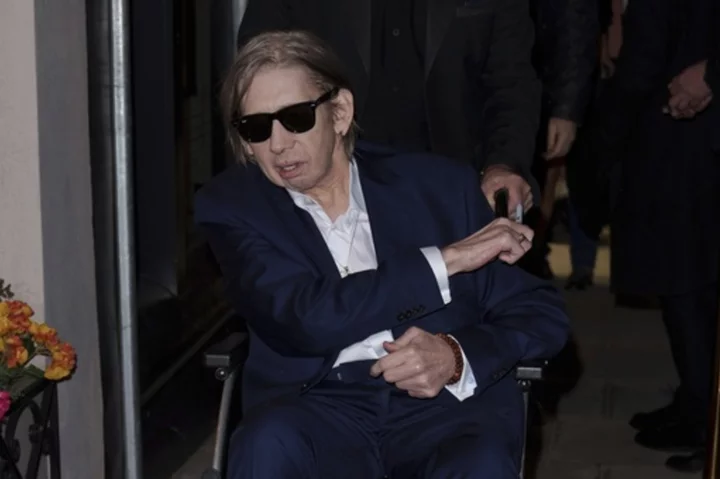TALLINN, Estonia (AP) — Vladimir Putin isn't quite the man he used to be — more than a decade has passed since the Russian president engaged in public stunts to boast of his vigor by hugging a polar bear or riding a horse barechested in the mountains. The war in Ukraine has further dented that strongman image.
Putin is still expected to seek another term when Russia holds presidential elections next March. In fact, he has pushed through changes in the constitution to allow him to run for two more six-year terms.
But 71 is an age when death or serious illness are hardly distant concerns for the man who has ruled Russia for 24 years. If Putin was not on the ballot for some reason, it's not clear who might take his place.
At the national level, Russia's political system is hermetic. There are no primary elections where voters can choose a candidate; political parties select their own contenders and then present them to the electorate.
In Putin's absence, the loyalist United Russia party could put forth a candidate, although there's no fixed procedure for it to choose one. Officially, Putin ran in 2018 as an independent, a precedent adding uncertainty to how a replacement could emerge.
However it plays out, a candidate almost certainly would come from within the current power structure, as none of the lesser parties' candidates would have wide recognition or support.
Some potential contenders if Putin isn't in the election:
DMITRY MEDVEDEVMedvedev has unique experience as a Putin surrogate, becoming president in 2008 when Putin could not seek reelection because of term limits. Despite the post, he was widely regarded as secondary to Putin, who became prime minister and effectively still led the country.
He submissively acceded to Putin's desire to run for a new term in 2012, serving as prime minister until 2020. He was then appointed to the new position of deputy head of the national security council.
Although that post was low-visibility and often seen as a sinecure, Medvedev's prominence soared last year when he abandoned his normally mild persona and became one of the most vehement defenders of the war in Ukraine, vividly denouncing the West.
That posture has appeal for Russian nationalists, but Medvedev could be tarnished by the perception he was too accommodating to the United States as president during the Obama administration's “reset” initiative, as well as a high-profile expose alleging corruption and garishly lavish living.
ALEXEI DYUMINAs governor of the Tula region, Dyumin does not have wide public visibility, but he has been tipped for years as possible Putin successor due to his close relationship with the president, including serving as his bodyguard.
Dyumin did come to public notice with his dramatic claim that he had once saved Putin from a bear. In Dyumin's telling, he was at a mountain residence where Putin was sleeping when he was informed a bear was outside the door.
“The bear and I looked each other in the eyes. He backed off a little, I opened the door and discharged the entire clip of my pistol at his feet,” he said.
Dyumin was the leader of special forces of the military intelligence agency, in Russia's 2014 annexation of Crimea, giving him an aura of valor and success related to Ukraine, in contrast to the grim struggles and failures of the current war.
SERGEI SOBYANINIf visuals matter in a Russian presidential race, Sobyanin could have the strongest portfolio of anyone. As mayor of Moscow since 2010, the Russian capital has undergone remarkable and visible changes.
New recreation areas, pedestrian zones, sports facilities and other amenities have flourished. Electric buses replaced rattling old trolleys, new commuter rail lines reduced the city's notorious traffic jams, and once-ragged parks were tidied up and enhanced.
Sobyanin offended Western-leaning liberals by banning LGBTQ+ parades in the city, but tolerance of gay rights is not a winning stance in Russia. Sobyanin also has avoided the flamboyance and divisiveness of his predecessor, Yuri Luzhkov.
MIKHAIL MISHUSTINRussia's prime minister since 2020, Mishustin has provoked no excitement and relatively little notice, but he does have one significant potential advantage: if Putin were to die or become unable to fulfill his duties before the election, Mishustin would become acting president. That's the same path Putin took when he became acting president upon Boris Yeltsin's resignation on New Year's Eve 1999, then capitalized on the position to win election the following year.
Mishustin doesn't appear to have that ambition, however. He is a quiet technocrat, regarded as highly competent in his previous post as head of the national tax service. As prime minister, he has received approval ratings of up to 70% for supervising the administration and ministries.
Although many observers think he was blindsided by Putin's decision to invade Ukraine, he has continued his tasks stolidly.
NIKOLAI PATRUSHEVThe parallels between Putin and Patrushev are striking. They were born in Leningrad 10 months apart, and Patrushev became head of the Federal Security Service, the main KGB successor agency, in 1999 when Putin became prime minister. Now head of the national security council, he echoes and sometimes amplifies Putin's hawkish views and animosity toward the West.
Although Patrushev initially demurred on recognizing the independence of the rebel leadership in Ukraine's separatist regions of Donetsk and Luhansk, which preceded the invasion by a few days, he later became a strong proponent of the war, arguing that Russia needed to wipe out what he called “neo-Nazis” on its doorstep and claiming that Ukraine and its Western orientation was a clear security threat.
He also denounced the alleged creep of Western neo-liberal ideas into Russia and defends preservation of the country's traditions, a philosophical stance identical to Putin's.

